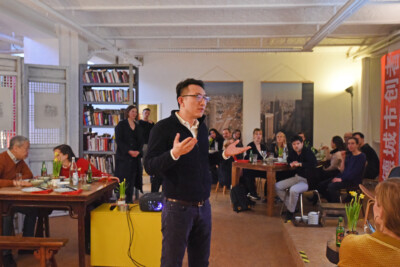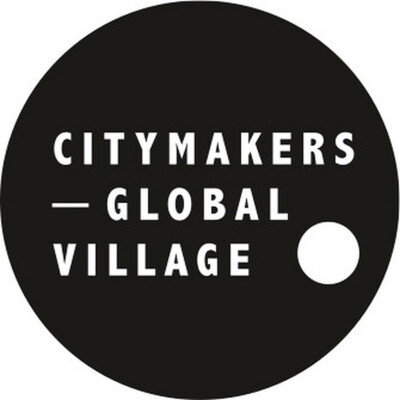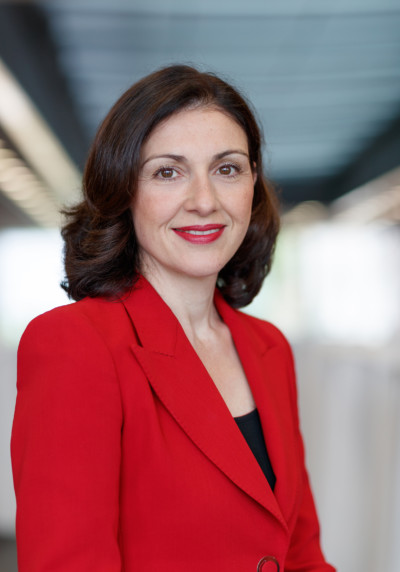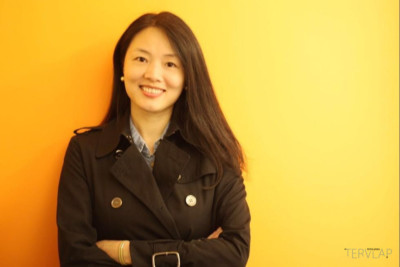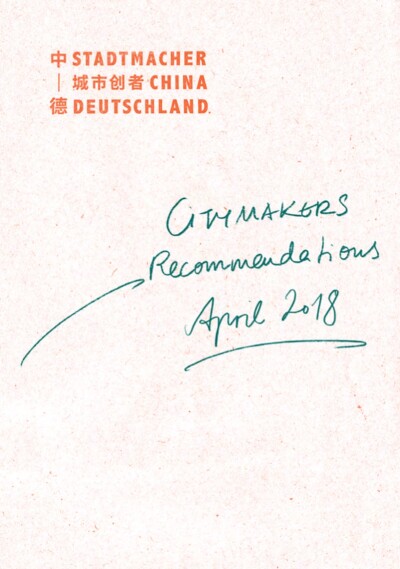Urbanization is one of the most pressing dynamics in the world. In China, urban growth has accelerated at an astonishing speed: In 2005, 40% of the population lived in urban areas; today it is close to 60% (that is over 800 million people). What would you say are the biggest challenges related to this phenomenon?
Rapid urban development in China, but also in Germany, has led to manifold challenges, ranging from adequate housing for a growing population to the provision of infrastructure and, among others, questions of climate change mitigation. An issue that is often overlooked however, is that of how to include the very diverse range of stakeholders in the city to create a livable and sustainable environment. In this process of rapid growth, the voices of many people remain unheard. Thus, I believe one of the main challenges we face is the integration of different perspectives and practices into city making, whether it is in China, in Germany or anywhere else.
International understanding and city making: What is your ambition as Robert Bosch Stiftung to contribute in this field and which impact do you wish to create through programs such as CITYMAKERS China – Germany?
One of the Robert Bosch Stiftung’s main fields of engagement is that of international understanding. We believe that global challenges can only be solved through cooperation across borders and cultures. Our objective is to facilitate multilateral and interdisciplinary exchange among stakeholders, contribute to sustainable partnerships and the joint development of solutions. Urban growth and the concomitant issues mentioned above are among these global challenges. With the CITYMAKERS China – Germany project, the Robert Bosch Stiftung aims to create more livable cities by facilitating exchange and the implementation of ideas on sustainable urban development in China and Germany. We hope to improve the work of existing and to support the development of new partnerships, creating a growing network of responsible citymakers between China and Germany.
Looking at the project CITYMAKERS China – Germany as one of the many projects that Robert Bosch Stiftung supports: Where do you see opportunities for synergies, joint learning or even partnerships with other Robert Bosch supported programs?
The platform created by the CITYMAKERS China – Germany offers the possibility to share experiences from other projects supported by the Robert Bosch Stiftung: Actors of Urban Change is a project that focuses on fostering collaboration between urban stakeholders across Europe by promoting cultural activities; Baladiya supports urban experts from Northern Africa in exchanging ideas and solutions for urban challenges with one another as well as German experts. Apart from these projects with an urban focus, we have extensive connections to a very diverse range of civil society and policy makers across East Asia as well as South and South East Asia. CITYMAKERS China – Germany can be a great partner for these programs and a fantastic network for many of our stakeholders to join. To help the network of CITYMAKERS China – Germany grow, I believe it needs to develop into a multilateral platform.
Sandra Breka was appointed to the Board of Management of the Robert Bosch Stiftung in September 2017. Her portfolio includes the Foundation’s departments of international relations, the program and liaison work in Berlin as well as the Robert Bosch Academy, a multilateral and interdisciplinary think tank.Since joining the Robert Bosch Stiftung in 2001, she has been responsible for a wide range of international programs of the Foundation, the establishment of the Robert Bosch Academy, the liaison with public and private partners in Berlin as well as the Foundation’s Berlin Representative Office, most recently as Senior Vice President since April 2013.
An expert in international relations as well as foreign and security policy, Sandra Breka previously served as Program Director at the Aspen Institute Berlin after an assignment with the American Council on Germany in New York. After studies in Germany, France and the United States, she obtained her M.A. at Columbia University in New York. She was a Yale World Fellow in 2008.
Sandra Breka is a Member of the European Council on Foreign Relations (ECFR) and serves on the Board of Directors and the Executive Committee of the European Endowment for Democracy (EED) among others.
Contact
Eve.Nagel@bosch-stiftung.de
Further thematically related programs supported by Robert Bosch Stiftung:
Actors of Urban Change
Grenzgänger
SPIELRAUM
Baladiya
